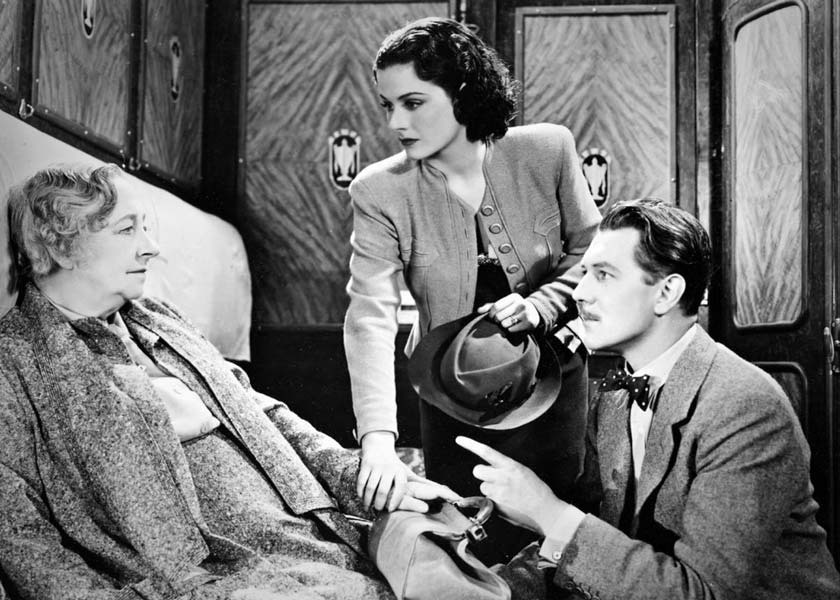Synopsis
In an alpine village, a group of British vacationers board a homebound train. Iris Henderson (Lockwood) and Miss Froy (Whitty) share tea and talk to several other passengers in a compartment. Iris naps, and when she awakes, Miss Froy is gone, and none of the other passengers remember her. Only Gilbert (Redgrave) accepts Iris' story that Miss Froy was on the train. Their search for her is unsuccessful, until they note that the nun attending the well-bandaged patient of Dr. Hartz (Lukas) is wearing high heels. They find an unconscious Miss Froy under the wrappings. Their rescue leads to an attack on the passengers by Dr. Hartz and his henchmen who want to stop Miss Froy from delivering important information to the British government— and eliminate the people who know about her presence.
Discussion
The Lady Vanishes, arguably Alfred Hitchcock's finest English film, is an excellent mixture of suspense and humor. Particularly amusing are the fanatical English cricket fans, Caldicott (Naunton Wayne) and Charters (Basil Radford), who are obsessed with the test matches. Wayne and Radford made such a popular comic duo that they were subsequently featured in very similar roles in several other films, notably Night Train to Munich (1940) and Dead of Night (1945).
TCM Film Festival, 2013
The Lady Vanishes was shown in the Riding the Rails
category
at the TCM Classic Film Festival in 2013. Actor, producer and director Norman
Lloyd, and film critic and historian Leonard Maltin discussed the film and
Hitchcock. Lloyd (age 98 when he appeared at the festival), was associate producer
of the TV series Alfred Hitchcock Presents (1957-62) and executive
producer of Alfred Hitchcock Hour (1963-65). He also acted in and
directed episodes of both series. Lloyd also appeared in the Hitchock films
Saboteur (1942), in which he has a memorable death scene, and
Spellbound (1945).
Lloyd discussed the introductions to Hitchcock's shows, always major elements of
the programs, in which the famed director set the stage for each episode with a
witty monologue. The introductions were written by the wildly imaginative James B.
Allardice, who found in Hitch
a ready collaborator to express his views of
the world. The television series made Hitchcock a star and a world figure.
Further Reading

